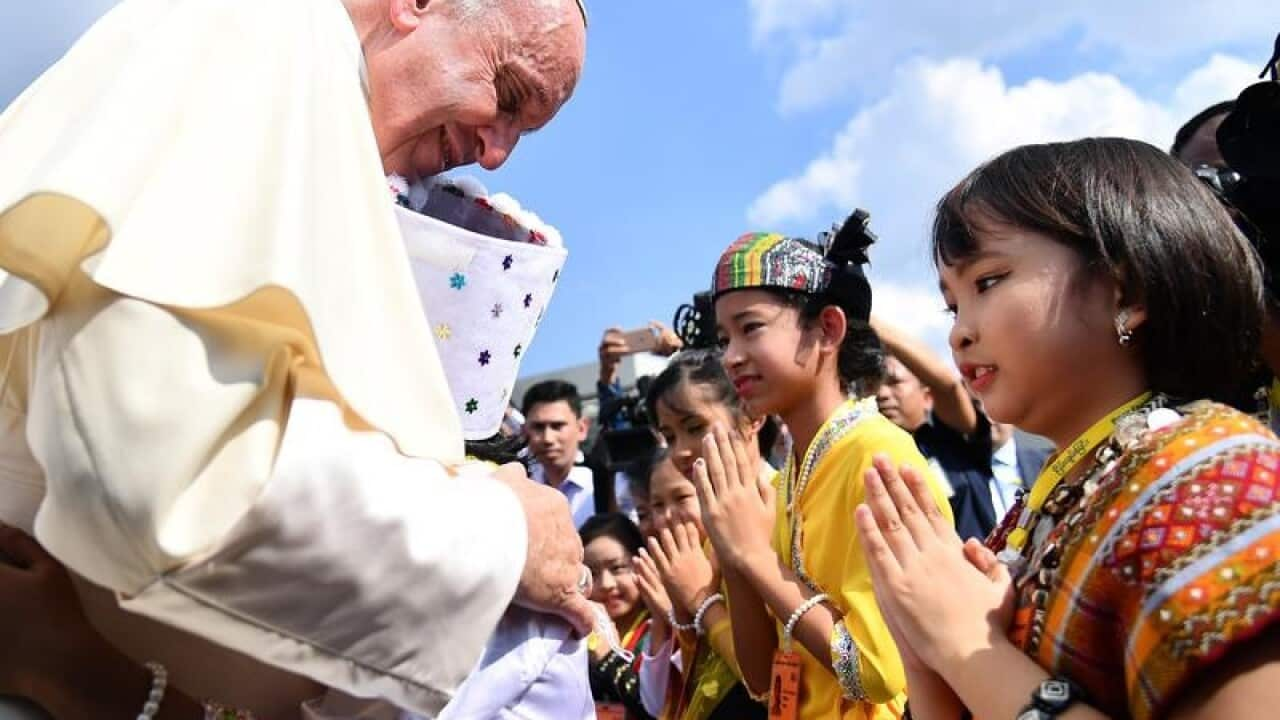Pope Francis has arrived in Yangon for the start of a delicate visit to majority-Buddhist Myanmar, which the United States has accused of conducting "ethnic cleansing" against its Muslim Rohingya people.
The Pope will also visit Bangladesh, where more than 620,000 Rohingya have fled to escape what Amnesty International has dubbed "crimes against humanity".
After leaving Rome, the Pope told reporters on his plane: "They say it's too hot (in Myanmar). I'm sorry, but let's hope it will at least be fruitful."
Ethnic minorities in traditional dress welcomed Francis at Yangon airport, and children presented him with flowers as he stepped off his plane.
He waved through an open window at dozens of children waving Vatican and Myanmar flags and T-shirts with the motto of the trip - "love and peace" - as he set off in a light blue Toyota car for St. Mary's Cathedral in the heart of the city.
Only about 700,000 of Myanmar's 51 million people are Roman Catholic. Thousands of them travelled by train and bus to Yangon, and they joined crowds at several roadside points along the way from the airport to catch a glimpse of the Pope.
The trip is so delicate that some papal advisers have warned him against even saying the word "Rohingya", lest he set off a diplomatic incident that could turn the Buddhist-majority country's military and government against minority Christians.
The Rohingya exodus from Rakhine state to Bangladesh's southern tip began at the end of August, when Rohingya militants attacked security posts and the Myanmar army launched a counter-offensive.
US Secretary of State Rex Tillerson last week called the military operation "ethnic cleansing".
Myanmar's government has denied most of the accusations made against it, and the army says its own investigation found no evidence of wrongdoing by troops.
Francis is expected to meet a group of Rohingya refugees in Dhaka, capital of Bangladesh, on the second leg of his trip.
The most tense moments of his Myanmar visit are likely to be private meetings with the army chief, Senior General Min Aung Hlaing and, separately, civilian leader Aung San Suu Kyi.

